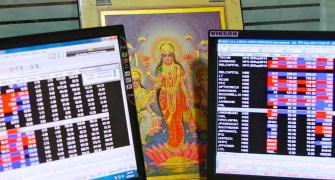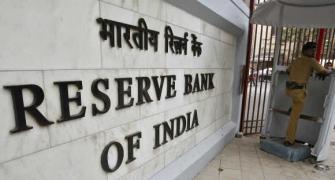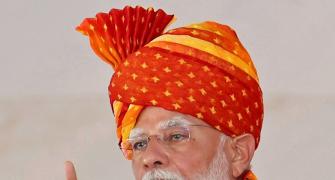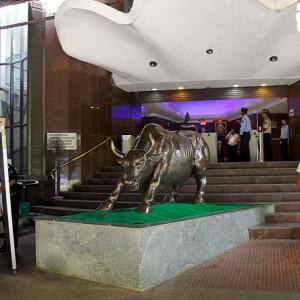2016 is difficult to predict, and this uncertainty will drive volatility in global markets, notes Abheek Barua.
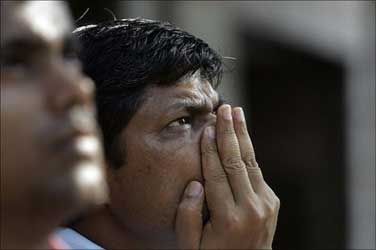 "In a New York minute, everything can change" - or so the iconic band, the Eagles, claimed in one of their popular songs. For the financial markets, the beginning of this year has been the equivalent of a New York minute, where sentiment, perception and trading behaviour have changed dramatically in a matter of hours if not minutes.
"In a New York minute, everything can change" - or so the iconic band, the Eagles, claimed in one of their popular songs. For the financial markets, the beginning of this year has been the equivalent of a New York minute, where sentiment, perception and trading behaviour have changed dramatically in a matter of hours if not minutes.
The sell-off across markets was led by the precipitous fall in China's stock markets and a decline in the exchange rate. And a severe contagion has spread across markets that are directly related to China and even all those that are less closely linked.
It is important to be careful about these rapid swings in the market and try to separate perception from fact. I for one was flummoxed by the massive sell-off in Chinese equities that begun the year.
The fact that industrial growth in China has been weak and that there has been persistent deflation in producer prices was known. The specific trigger that set off the downward spiral, the December print of the semi-official Caixin index hardly signalled an apocalypse. The reading was just a few points below the consensus expectation.
What changed very quickly was the narrative on China - the popular view that China's headline growth numbers were somewhat misleading, in the sense that they did not pay enough heed to the rise of the service sector, of the robustness of consumer spending and instead focused too much on the industrial side.
The props for China's growth from services and retail expenditure that have emerged on the back of policy-engineered structural change are suddenly being overlooked completely.
The focus is now obsessively on China's "dark side" - the recession in its industrial economy (highly concentrated incidentally in a few provinces), its mountain of offshore and onshore debt, massive overcapacity in some sectors, and so on and so forth.
Ditto for Europe, whose markets were battered mercilessly in the first week of the year. The continent's problems have been common knowledge for at least five years now and its economies are nowhere close to a significant recovery.
Yet, if one looks at some of the critical macroeconomic parameters like budget deficits, current account balances and so on, things don't look quite that bad. If I go by the forecasts made at the end of 2015, the euro zone seems to be on a path of slow mend, led by consumer spending.
Thus, one possibility, if the Sino and Euro-optimists are to be believed, is that things should stabilise as markets see the light of reason and take a hard look at numbers. The fear that China would hard-land could slowly dissipate and the promise of weak revival that the European economies seem to make could be back on the table. (European markets, and China to a degree, seemed to have stabilised for the moment).
The recent depreciation in the yuan will not be viewed as a grand strategy of devaluation, but as a much needed correction in a currency that is massively overvalued.
However, there is a risk in taking this "let's not panic view" view. Perhaps the mayhem in markets across the world is a sign that investors have woken up to the fact of, for the lack of a better phrase, a "regime change".
The US Federal Reserve's mid-December hike in rates decisively marked the end of the easy money regime that propped up assets despite tepid growth. Whether it hikes by half or a full percentage point this year is hardly the issue.
The fact is that with each hike the margin or the carry that a dollar loan offered in playing other markets that promised better yields reduces.
This comes at a time when, despite the portend of a cyclical recovery in the US, global growth prospects look extremely weak - and perhaps, if agencies like the World Bank are to be believed, getting weaker.
The cliched backstop for global growth - solid performance in emerging markets (EMs) - are now a thing of the past. EM growth for 2016 is likely to be well below trend and potential while developed markets, led by the US, are beginning to inch up over their trend rates.
There is a strong belief in the markets that both pessimism and money rotates across asset types and geographies. The rotation away from commodities started last year along with a shift away from emerging markets.
Portfolio flows into emerging markets turned negative for the second half of 2015 while commodity prices plunged through most of the year. If this rotation argument works, money could be moving out of stocks next and mark a beginning to what could be a prolonged bear market in stocks.
The sell-off could be particularly acute for emerging markets stocks. If commodities and stocks fall off the investment map, the only asset category left will be bonds. Thus, 2016 could de facto turn out to the year for bonds.
The problem however is that we might not get a clear cut move in either direction - towards sustained gloom or cheer. Market sentiment is likely to oscillate between despair and hope as both good and bad news flows in.
The US Fed will keep investors on their toes as they guess when the next hike is likely to come and the signals about the US and global economy that they should read from the next hike hike.
Ironically the same action by the Fed could elicit very different responses depending on the phase of the mood cycle that investors in.
It could bring cheer if it is seen as an affirmation of a continuing recovery in the US. Alternatively if the markets are already in a funk it could set alarm bells ringing as the cost of funding moves up.
The bottom-line is that 2016 seems just as if not more difficult to predict than 2015. This is likely to drive extreme volatility in the financial markets.
Traders like volatility - but ordinary investors like me with their paltry savings invested in mutual funds are likely to get the jitters. I am not looking forward to 2016.
The writer is chief economist, HDFC Bank. These views are his own.



